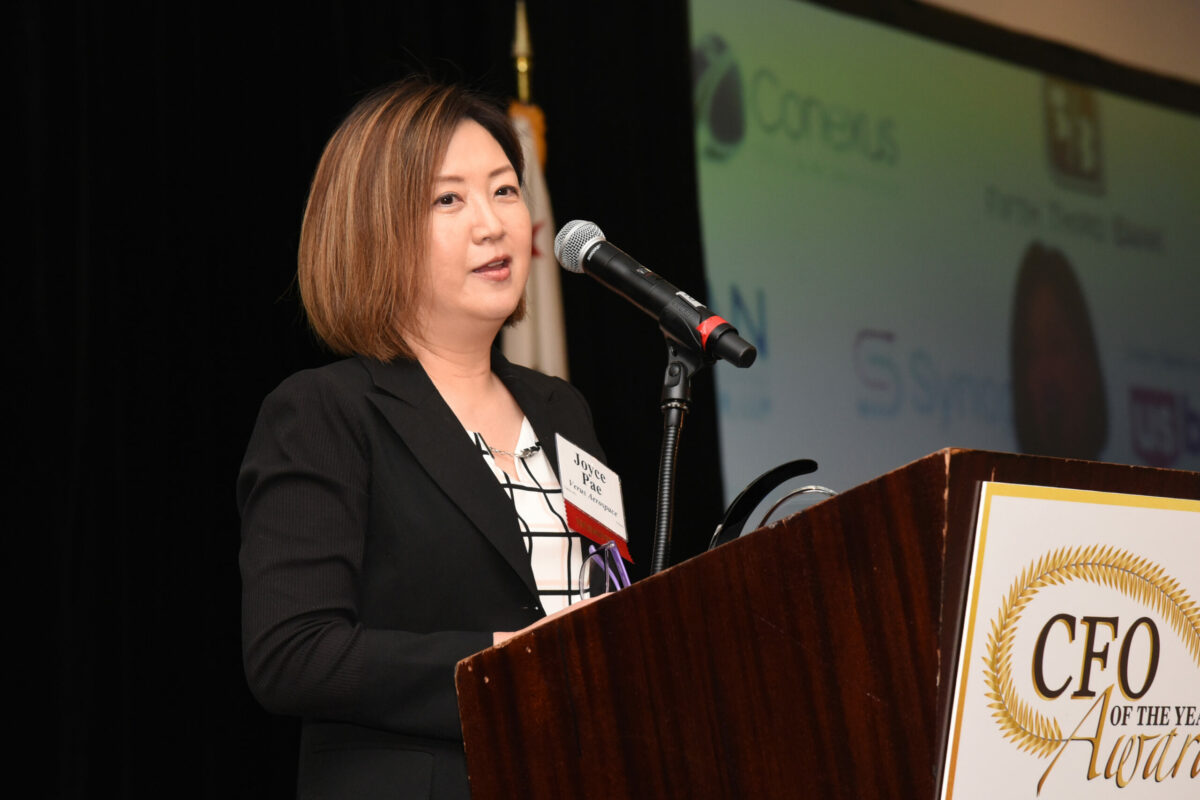
Since winning the Business Journal’s CFO of the Year Awards last May, Joyce Pae has gone from managing two balance sheets at Verus Aerospace to focusing only on one.
She was recognized for keeping Verus afloat during the pandemic and overseeing the company’s split, which led to the formation of Kinetic Engine Systems – a new firm focusing on manufacturing engine components.
Last August, Kinetic appointed John Stockman as its new CFO, replacing Pae who had served as CFO of both Verus and Kinetic for more than a year.
“Now that I’m not managing two companies, I am 100% dedicated to operations at Verus Aerospace,” Pae told the Business Journal.
Prior to completing the split in May of 2023, Verus and Kinetic generated about $600 million in revenue and had a combined 2,000 employees, according to Pae.
“We are picking and choosing contracts, so I’m not going to say that revenue has been growing, but profit margin has been growing,” Pae said.
It’s an exciting time for aerospace, especially coming off a turbulent year for the industry with the temporary grounding of the Boeing 737 Max planes and seven-week strike of 33,000 Boeing machinists, Pae said.
These production quality issues negatively impacted demand from suppliers, but now that’s changing, she said.
A large portion of Verus’ clientele is commercial, but Pae said that they’re also trying to get more military contracts.
Verus, headquartered in Anaheim, has over 500,000 square feet of manufacturing space across the nation, including in Torrance; Wichita, Kansas; and Tacoma, Washington.
It’s more vertically integrated compared to other aerospace companies, performing its chemical processing in-house, Pae said.
All aerospace parts must go through the process to ensure the metal is durable enough and meets the qualifications of the original equipment manufacturer (OEM). It’s a critical step in the quality and assurance procedure.
“There’s more stress in the aerospace industry because we have to make sure that we produce quality parts,” Pae said. “We’ve seen it in 737. If something happens, people die, so we take our jobs really seriously.”
Doing chemical processing internally also saves the company from having to pay premiums and keeps costs down, Pae said.
